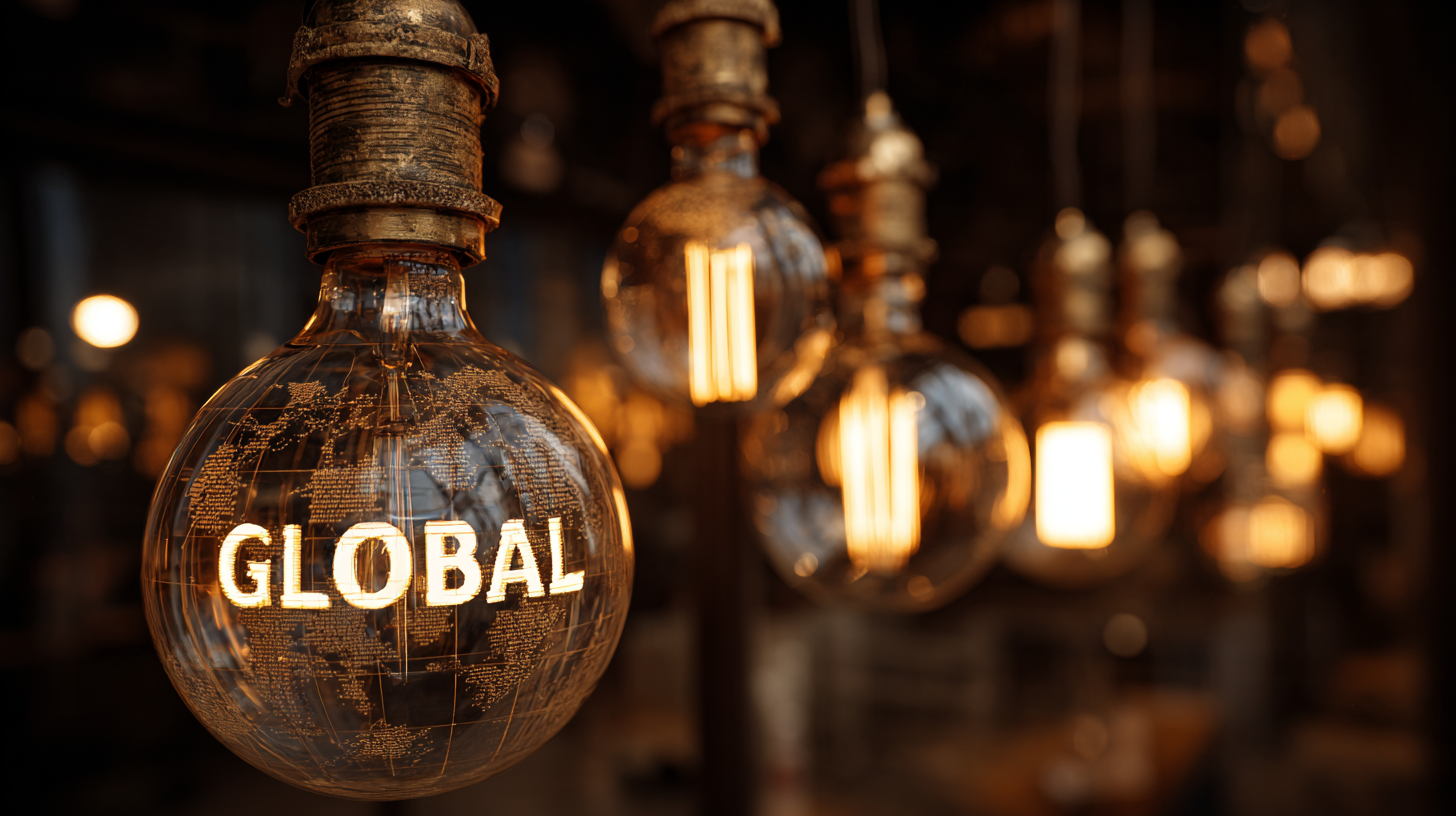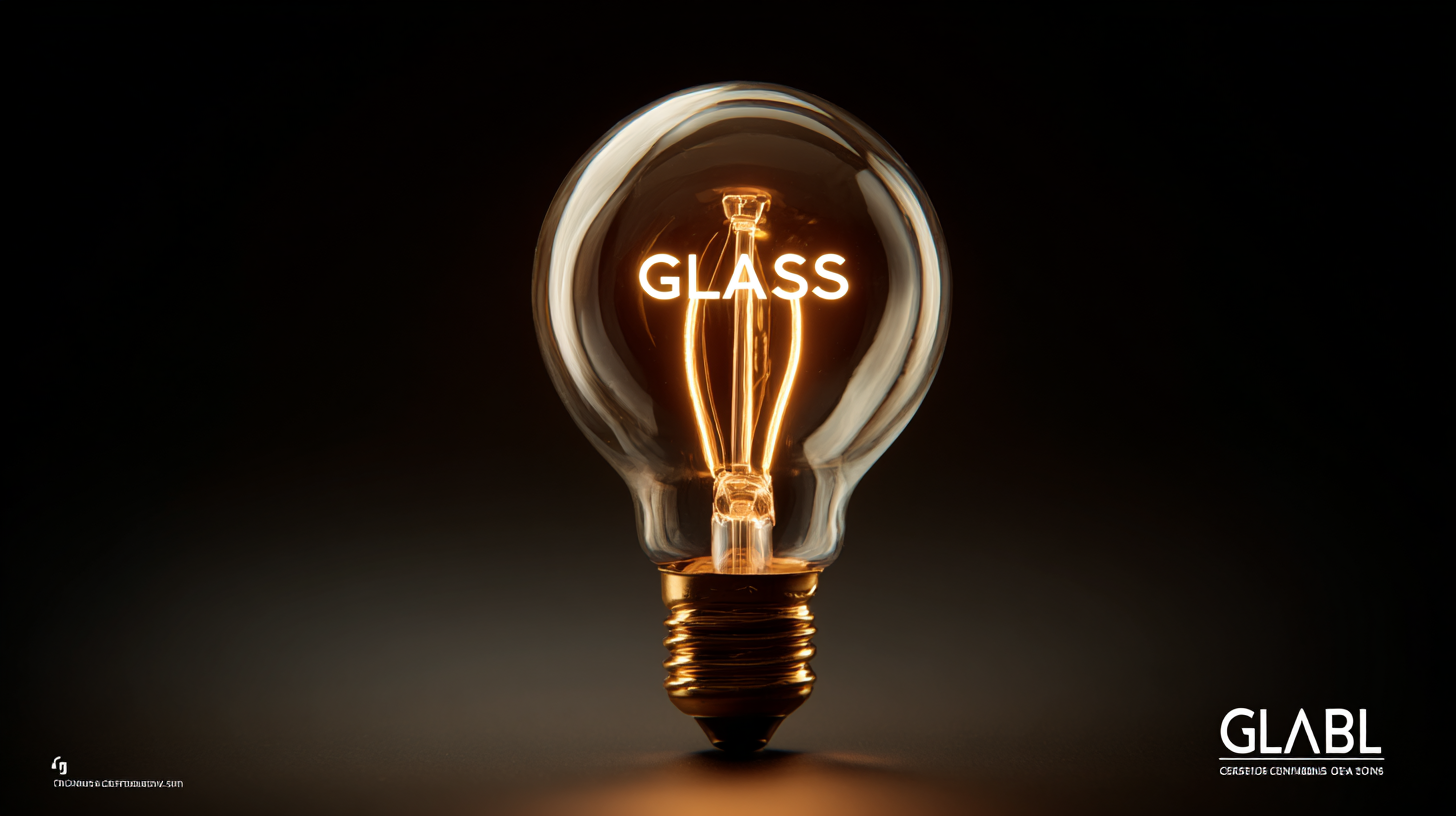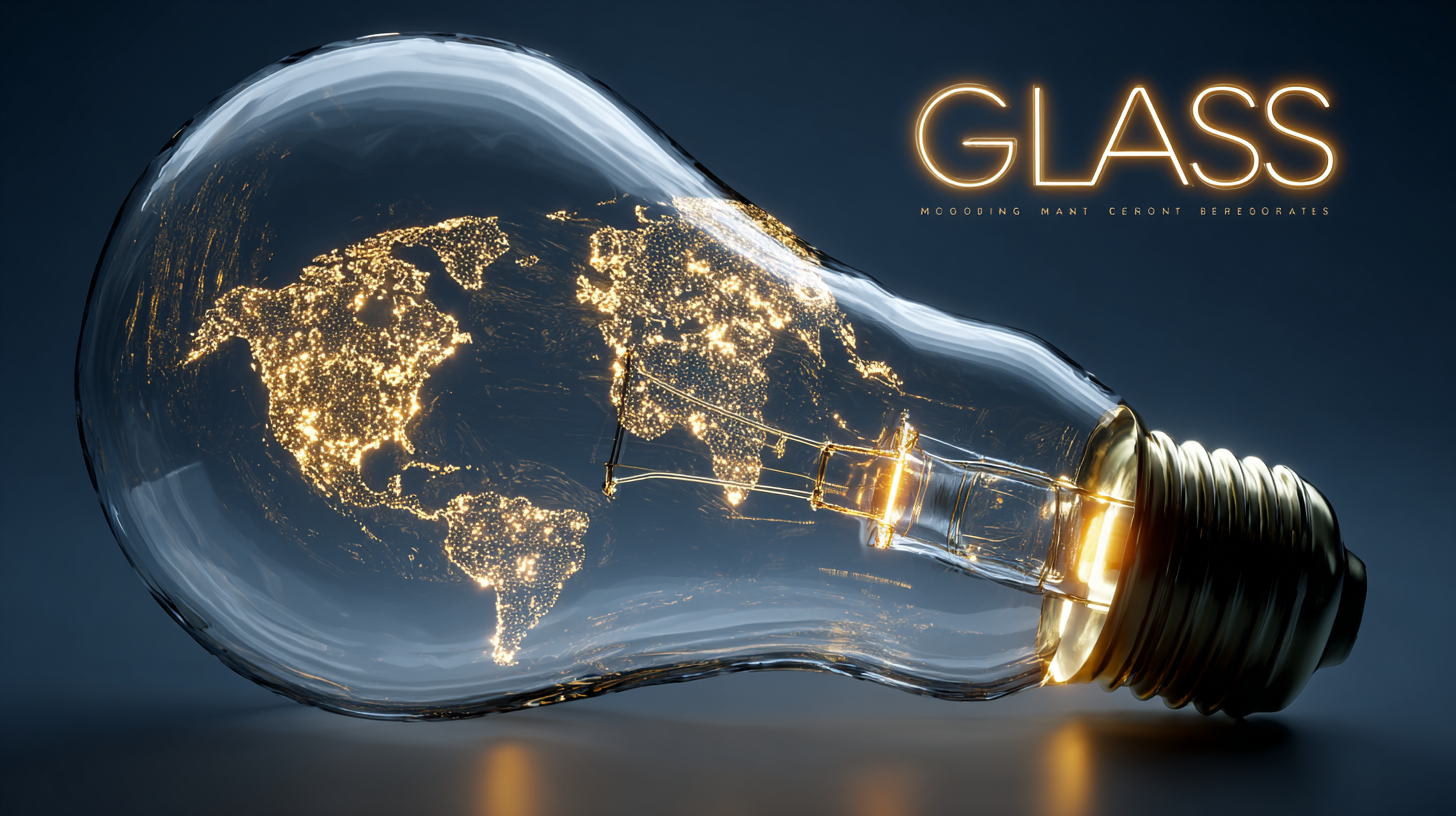In an increasingly interconnected global marketplace, the demand for high-quality glass bulbs has surged, driven by both consumer preferences and industrial applications. According to a recent report by MarketsandMarkets, the global glass bulb market is projected to reach USD 15 billion by 2026, growing at a CAGR of 5.4% from 2021 to 2026. This growth is fueled by innovations in technology and rising eco-consciousness amongst consumers seeking sustainable lighting options. As China stands as one of the largest producers and exporters of glass bulbs, understanding the intricate web of import and export certifications becomes crucial for gaining a competitive edge. In this blog, we aim to guide manufacturers and exporters through the regulatory landscape, unlocking the potential of global markets by ensuring compliance and delivering superior products that resonate with quality-conscious buyers worldwide.

Navigating the complex landscape of import and export certifications is crucial for businesses dealing in glass bulbs. The global glass bulb market is projected to reach $14 billion by 2025, driven by growing demand in both residential and industrial sectors. For companies looking to capitalize on this market, understanding the specific certifications required in different countries can make a significant difference in ensuring compliance and expediting the import-export process.
Certain certifications, such as the ISO 9001 for quality management systems, are essential for glass bulb manufacturers aiming to enter international markets. Additionally, certifications like CE marking in Europe or UL listings in the United States are often mandatory to meet safety and performance standards. According to a report published by the International Trade Centre, failure to obtain the correct certifications can lead to delays, fines, and even bans on products, highlighting the importance of thorough research and accurate documentation. As global trade becomes more interconnected, the significance of these certifications will only continue to grow, making it imperative for businesses to stay informed about the requirements that govern their products in foreign markets.
When venturing into the global market for glass bulbs, understanding the essential certifications is crucial for successful import and export. Different countries demand varying standards that ensure safety, quality, and environmental compliance. The most common certifications include CE marking in Europe, UL certification in the United States, and RoHS compliance for hazardous substances. Each certification serves to protect consumers and promotes trust in the product’s reliability, making it essential for exporters to be well-versed in these requirements.
Tip: Before starting the certification process, research the specific regulations of the target market to avoid costly delays. Engaging with local experts or certification bodies can provide invaluable guidance tailored to your product.
It's also vital to stay updated on the evolving regulatory landscape. As sustainability becomes a global priority, many markets are implementing stricter guidelines regarding environmental impact. Certifications like Energy Star and eco-labeling are gaining traction, which may affect the way glass bulbs are produced and marketed.
Tip: Regularly review compliance updates from regulatory agencies and participate in trade associations to network with industry professionals who can offer insights and resources for navigating certification challenges.
 Navigating the complex landscape of international regulations for importing and exporting glass bulbs can be daunting. To facilitate trade, businesses must be well-versed in certifications that ensure product safety and compliance with regional standards. According to the International Trade Administration, the global lighting market is expected to reach $150 billion by 2027, emphasizing the need for clear compliance strategies in this burgeoning industry.
Navigating the complex landscape of international regulations for importing and exporting glass bulbs can be daunting. To facilitate trade, businesses must be well-versed in certifications that ensure product safety and compliance with regional standards. According to the International Trade Administration, the global lighting market is expected to reach $150 billion by 2027, emphasizing the need for clear compliance strategies in this burgeoning industry.
One essential step is to familiarize yourself with the specific regulations of your target markets. For instance, the European Union mandates compliance with CE marking, which indicates conformity with health and safety standards. Additionally, obtaining the Energy Star certification can open doors in the U.S. market, appealing to environmentally conscious consumers.
Tips for Success: Always stay updated on changing regulations; subscribing to industry newsletters can help. Engage with legal experts specializing in import/export to navigate complex documentation efficiently. Lastly, consider joining trade associations, which often provide valuable resources and networking opportunities that can guide you through compliance requirements effectively.
Navigating import and export certifications for glass bulbs can be a complex process, but ensuring compliance is crucial for accessing global markets. To succeed, it’s essential to understand the specific regulations of each target market. Different countries have varying standards for safety, quality, and environmental impact, which means a one-size-fits-all approach won’t work.
**Tip 1: Research Compliance Requirements**
Before initiating international sales, conduct thorough research on the certification requirements specific to the countries you are targeting. This can include environmental regulations, electrical safety standards, and quality certifications. Websites of relevant governmental and industry bodies often provide comprehensive guidelines.
**Tip 2: Collaborate with Local Experts**
Engaging with local consultants or regulatory experts can help streamline the certification process. They’ll have updated insights on compliance issues and can assist with navigating paperwork, ensuring your glass bulbs meet all necessary criteria before they reach the market.
By prioritizing compliance, businesses can unlock new opportunities in global markets while minimizing risks associated with non-compliance.
| Region | Certification Required | Issuing Authority | Validity Period | Key Compliance Requirements |
|---|---|---|---|---|
| North America | UL Certification | Underwriters Laboratories | 3 Years | Safety testing, labeling standards |
| Europe | CE Marking | European Commission | No Expiry | Compliance with EU directives |
| Asia | CCC Certification | China Quality Certification Center | 5 Years | Product safety, environmental standards |
| South America | INMETRO Certification | National Institute of Metrology | 5 Years | Compliance with Brazilian standards |
| Australia | GS Mark | TÜV Rheinland | 3 Years | Safety and quality assurance |
Navigating the complexities of importing and exporting glass bulbs can be challenging, especially with fluctuating economic conditions globally. Recent reports show that the South Korean economy has faced a downturn, with a surprising GDP contraction and heightened tariff pressures impacting export dynamics. For businesses involved in the glass bulb trade, understanding these changing economic environments and adjusting their strategies accordingly is essential to overcoming obstacles in the market.

Tips: To facilitate smoother import and export processes, companies should proactively stay informed about the latest regulatory changes and market trends in key regions. Building strong relationships with local authorities and conducting thorough market research can also help mitigate risks associated with tariffs and trade agreements. Moreover, diversifying export destinations beyond economically strained regions can open up new opportunities for market growth.
In the context of ongoing challenges, businesses must remain agile. For instance, when faced with delays or increased costs due to new regulations, consider investing in compliance technology to streamline certification and documentation processes. Keeping abreast of innovation in materials and production can also give companies a competitive edge in a tightening market landscape.
